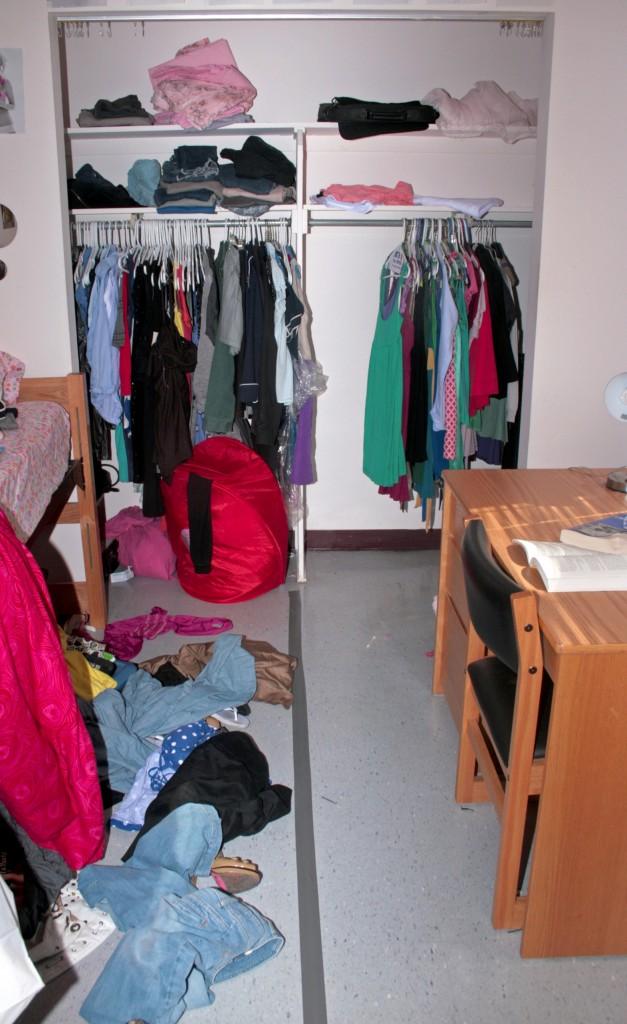Colleges Explore Innovative Ways to Pair Roommates
June 3, 2011
Published: October 2, 2008
Every college freshman dreams of being paired with the perfect roommate. It’s a long shot, an elusive fantasy: you hit it off right away, have 12 inside jokes by the end of the first week, live together all through college and are an integral part of each other’s weddings years down the road. Unfortunately, your future best man or maid of honor usually isn’t sleeping in the bed across from you during freshman year. It turns out that this may soon change. Admissions offices around the country are exploring new methods in hopes of making perfect roommate matches the norm.

According to a recent article in the Chronicle of Higher Education, many colleges use a system where incoming students can choose their own roommates based on Facebook-esque profiles that they create. Incoming freshmen can search online for a future roommate whose profile looks compatible to theirs. The article contrasts this approach with that of a hardworking residential life staff who uses extensive research and surveys to meticulously hand-match freshman roommates. Some colleges require incoming freshmen to provide all kinds of detailed information—from hobbies to TV habits to pet peeves. The University of Richmond even provides an entire page to answer an open-ended question at the end of their roommate form.
So what is the Fordham system like, and how does it measure up? According to Jenifer Campbell, director of residential life at Fordham College at Lincoln Center (FCLC), a packet of housing information is sent out over the summer, which includes a card called the RL-100 that is to be returned to the office within a week. Campbell describes the RL-100 as “a gauge of what type of environment [freshmen are] looking for”—questions concerning sleeping habits, study habits, neatness and so on.
Ali Delgadillo and Jessica Dennison, both FCLC ’12, are roommates who describe their living situation as “perfect.” Dennison said that she was totally honest on the card she sent to Residential Life this summer. She added, however, that the ambiguity of the questions on the card was a concern. “[The questions] were not very detailed,” said Dennison. “It was really general. I was actually pretty nervous.” Dennison said that she wished the questionnaire had been more thorough. The cards are the only tools that the residential life staff has to work with when pairing people, although Campbell said that the matching is done “as closely as possible.”
However, despite the vague questions, the FCLC roommate matching system seems to be pretty effective. Lauren Caminiti, FCLC ’11, had a positive experience living with her freshman year roommate. “It seemed like nothing was really on the card, but we meshed really well anyway,” said Caminiti. She is currently living happily with the same roommate and a suitemate she was assigned freshman year, and is “good friends” with another suitemate who chose to commute this time around.
There are, of course, exceptions to the success stories. Katryn Hurtado, FCLC ’11, said that she was honest on her RL-100, but she and her freshman roommate (who has since transferred) “didn’t get along that well because [they] had different lifestyles.” If, hypothetically, her roommate had decided to stay at FCLC, she said that she would not live with her again. Campbell acknowledges that not all matches work out well, describing the FCLC system as “relatively successful.”
When asked about the online profiling system some colleges are now implementing, students have mixed feelings. “That sounds really cool, as long as everyone is honest,” said Delgadillo. “Online, you can never really know who the person is.” Brian O’Connell, FCLC ’12, thought that online profiling is “a better idea, but more difficult,” expressing concern about the lack of an even playing field this system provides. Very few people know each other before attending college, and if incoming freshmen feel unwanted online before they even arrive, “it might not go over very well.”
Campbell sees the online profiling system as a result of the current social networking culture. As for Fordham’s roommate-pairing future she said, “we’re always looking for ways to improve. We would never shut the door on an opportunity [to improve].” There are no plans as of now, however, to change the system. As Campbell says, “If it’s not broke…”












